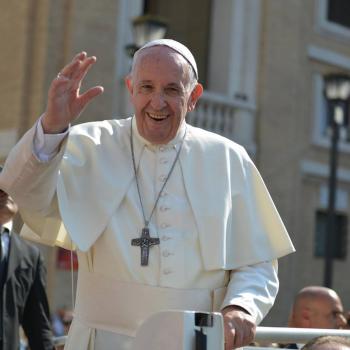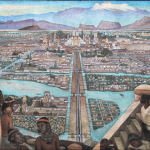
Referring to James Bond fandom as a “cult” of “exaggerated sex, sadism, and snobbery,” Missouri-based Methodist minister Lycurgus M. Starkey Jr. provided a scathing Christian ethical appraisal of Bond and his “world of values” in his 1966 book.
By Starkey’s estimation, Bond was no modern hero to emulate in a rootless, secular culture, but a man whose “whoring and wheeling and dealing” presented a public affront to Christian faith and ethics.
But could it be that this paragon of immorality was actually a devout Roman Catholic? Or a staunch Calvinist? And could, as pastor Benjamin Pratt wrote, the Bond stories be theological parables created by author Ian Fleming to help us contemplate — and perhaps combat — Fleming’s own list of seven deadly sins: avarice, cruelty, snobbery, hypocrisy, self-righteousness, moral cowardice, and malice?
October 5, 2022, will be the 60th anniversary of the world premiere of the first James Bond film Dr. No in 1962. On this marquee “Global James Bond Day,” I look at 007’s checkered relationship with religion and what we might have to learn about both our conceptions of spirituality and the secret agent in the process.
James, a bond servant of the Lord?
Reading the New Testament letter of James, Benjamin Pratt could not shake the feeling that there might be parallels between the biblical author and the world-famous super spy.
At the heart of his comparison was a shared commitment to combat evil, “whether it be found in high places or in ourselves,” he wrote. There might be something to this, as Fleming referred to Bond as a modern personification of St. George, the dragon slaying knight and Catholic saint.
But might there be even more to it than that? Could Bond himself be religious? Some have surmised that Bond is a Roman Catholic. Others, a cultural Calvinist.
In 2015’s Spectre, Bond replies to his love interest Dr. Madeleine Swann's question, "Why does a man choose the life of an assassin?" with, "Well, it was that or the priesthood." Could it be that we could have ended up with Rev. Bond, James Bond if different life choices were made?
People like to point to a range of “evidence” to suggest Bond was at the very least Christian, if not a card-carrying Catholic. In On Her Majesty’s Secret Service the movie, Bond gets married in a religious ceremony; in For Your Eyes Only, Bond visits his dead wife’s grave in a Christian cemetery, where a potentially Catholic priest blesses him when his helicopter departs; in Skyfall, his childhood home has a priest hole and a chapel on site.
Above all, Bond-is-Catholic enthusiasts point to the real-life Bonds whose family motto Orbis non sufficit – “the world is not enough” – was famously referenced in both On Her Majesty’s Secret Service and the eponymous 1999 film. Hailing from Dorset, the Bonds were recusant Catholics and later, Jacobites who supported the cause of Catholic “Pretender” Charles Edward Stuart against the Protestant throne of George II.
There are also those who suggest Bond came from a family of nonconformist reformed Protestants. In 1980, continuation novelist John Gardner even gave Bond a “a very Calvinist upbringing” as backstory.
Still others turn to the first Fleming novel, Casino Royale, when Bond reflects on the nature of good and evil with French agent René Mathis. In the exchange, Bond insists humans need an “Evil Book” to complement the “Good Book.” To which Mathis ripostes, “[W]hen one’s young, it seems very easy to distinguish between right and wrong, but as one gets older it becomes more difficult” adding in the film Quantum of Solace, “the villains and the heroes get all mixed up.”
Though Bond speaks of “resurrection” and “sins” in Skyfall and considers where a “just God” might dispatch his enemies’ and allies’ souls upon death in the novel Doctor No, it appears that religion did not play an important role in Fleming’s life and thus, was not passed on to his most famous literary creation.
Despite the wishful thinking of some Christian writers, Bond is nothing more than a “cultural Christian,” drawing on the privileged religious remnants of western European history and the detritus of centuries-worth of Christian ethics, morality, and philosophy.
As blogger Comtessa wrote back in 2010, “if Fleming occasionally alludes to religious words and concepts, then their use is a product of his cultural environment and the ideas – the memes – he inherited from his parents and social network. Naturally, Bond gained a similar background.”
In the end, Bond is probably a practical agnostic. And it is that pragmatism in the face of chaos, death, and monotony that makes Bond somewhat of a secular, existentialist hero rather than a Christ-like archetype, according to philosophy professor Beth Butterfield.
Commenting on how Bond lives out the existentialist notion of “being-towards-death,” Butterfield wrote that Bond’s example shows that humans cannot hide from the painful realities of the world but must find meaning in life and reasons to live through courage and creativity.
Religious encounters on Her Majesty’s Secret Service
If we can’t conclude whether Bond is religious or not, we can certainly comment on how it is often others around Bond who are.
Religious allusions are peppered throughout the Bond books and films. Whether it’s the hollowed-out Bible used by a missionary to smuggle jewels in the movie Diamonds Are Forever, references to Zen Buddhism and Shinto Kami in You Only Live Twice, or when Bond walks along the inner court of the Ibn Tulun mosque in Cairo in The Spy Who Loved Me, Bond’s world is suffused with religious people, places, and perspectives.
As an “iconic action hero who is defined by his social locations…and the actions he takes in a vast array of geographical places,” Bond’s encounters evoke ways of inhabiting, interacting with, and being in motion in a world made unsafe by religious agents, objects, and structures. Thus, religion is an important element in understanding who Bond is, even if he himself is not religious.
Unfortunately, as religion scholar Teemu Tiara pointed out, religion has long been absent in Bond studies.
Examining 25 Bond films through the lens of “religion” – those things bearing resemblance to how we define such a category – Tiara suggests, “if there is anything that ties portrayals of ‘religion’ in Bond films together, it is what Stuart Hall…called the discourse of ‘the West and the Rest’.”
In this formulation, the West is not a geography, but an abstract concept used by Europeans and others to classify societies and people into different, hierarchical categories. This means people tend to draw “crude and simple distinctions” and construct “an oversimplified conception of difference,” Hall wrote.
This discourse is operationalized in the 007 film and literary universe as Bond is cast as a secular, modern, urbane, and capitalist hero – often pitted against mythical, old-fashioned, unsavory, and communist villains. Such is the case in Live and Let Die when Bond defeats the main villain Mr. Big, who is both a communist operative and the head of a secretive, Black “Voodoo Cult.”
Or Bond might be called upon to protect and enlighten hapless religious characters limited by their beliefs, rituals, or morals like with Caribbean characters caught up with “Black superstitions” like obeah or in the novel The Spy Who Loved Me when Bond rescues – and sexually awakens – a young Canadian woman struggling under the weight of her strict Catholic upbringing and morality.
In both instances, and in addition to the racialized and gendered stereotypes at play, Bond is cast as the heroic opposite – or even savior – of the weaker, and more explicitly religious, characters.
“Religion” shaken and stirred
As Tiara makes clear, and even the discussion around Bond’s religion suggests, reading 007 films and books through the lens of “religion” helps us explore how religion is portrayed, and how it is framed, both in the popular series and in public discourses.
Furthermore, reading “religion” through the lens of James Bond helps us go one step further: to consider how the British super spy is co-constituted by a world permeated with religious actors, institutions, beliefs, and practices.
Over the last 60 years – or 69 since the appearance of the first novel – Bond has been read from multiple angles. He’s been viewed as a Nuclear Age hero, an embodiment of Britain’s Cold War national anxiety, or a Nietzchsean Übermensch.
As we look back on the last several decades of Bond – and consider the religious angles to be discovered in the character and his world – we might also consider what we have to learn about the language we use, and assumptions we make, when it comes to things and people deemed “religious.”
Whether Bond is a secular existentialist, a practical atheist, or an almost-priest-turned-assassin, we might take a moment to consider how the metaphorical or situational references to religion in the books and films not only inform what we think of James Bond but how we see the world and those within it as good, bad, religious, secular, or somewhere in-between.
Further Reading:
•Lisa Funnell and Klaus Dodds, Geographies, Genders and Geopolitics of James Bond.
•Jacob M. Held and James B. South, James Bond and Philosophy: Questions Are Forever.
•Teemu Tiara, “Reading Bond Films through the Lens of “Religion.”
9/30/2022 5:52:03 PM





